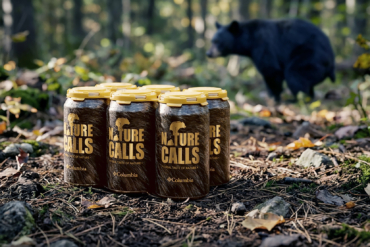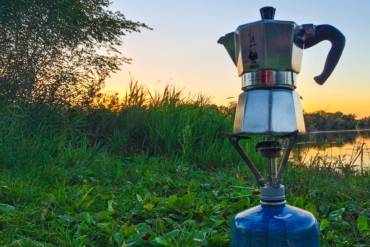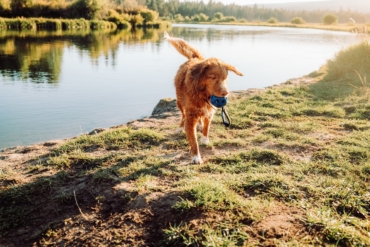Bikes hang from the ceiling. Dogs roam free. In the cafeteria a scent of baked goods — cookies or fresh Clif Bars from an oven, hard to tell? — seeps from a kitchen behind a counter, employees crunching in to read up on the chef’s special of the day. (Authentic ramen-noodle soup served in a huge bowl on my visit last week.)
Welcome to the headquarters of Clif Bar & Company, a utopian workplace of sorts in Emeryville, Calif., where you can check out a bike to ride at lunch, get paid to visit an in-house gym, drop your kids off at a connected daycare, pull on a rock-climbing wall during a coffee break, and let a leashed canine friend lie panting under your desk all day.
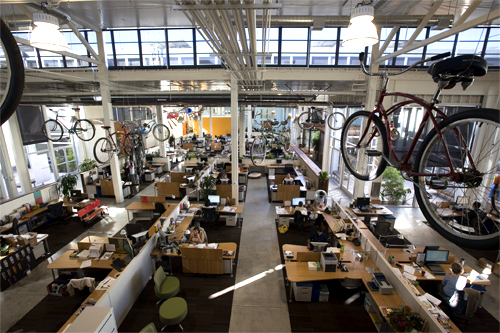
I visited Clif during a misty spring afternoon last week. Raindrops streaked the many windows of the brightly-lit space, including a large roof-less atrium, which punches a square of outside air into the office building near a glass-wall meeting room. “You feel connected to the outdoors sitting here,” one employee said.
Opened last year as an experiment in eco/sustainable building practices, Clif’s headquarters is in a former valve manufacturing plant in an industrial part of town. Reclaimed wood and fixtures dominate the interior design, and solar panels flank the roof. In addition to being an incubator for all things energy food, the 115,000-square-foot space is something of a temple to the company’s cited “five bottom lines,” which, in Clif’s nomenclature, include “sustaining our business, our brands, our people, our community, and the planet.”
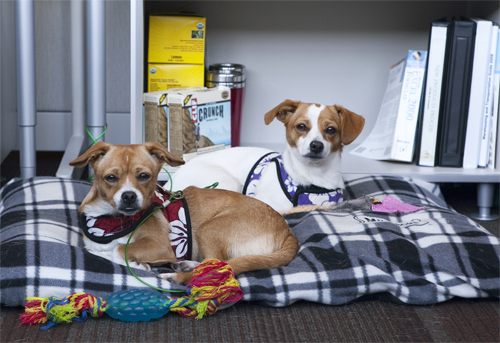
In a hallway near a theater off the main office floor, there is a wall adorned with artwork and dioramas made with used bike parts. “This was a program from last year,” noted one Clif person, describing the art project as being in the “sustaining our people” realm for the company. Other parts of the office show off Clif employee efforts on community projects around the Bay Area or massive volunteer projects in places like New Orleans.
Clif products — bars, gels, gummy blocks, and drink mixes — flank shelves throughout the space, free for the taking. Twenty years ago, Gary Erickson invented the Clif bar (named after his dad) and made the first prototypes in a tiny bakery in Berkley. He was a serious cyclist at the time (still is, in fact) who was not happy with the current state of energy food. (See our article, “Interview: Founder of Clif Bar,” for more background on Erickson and the company’s roots.)
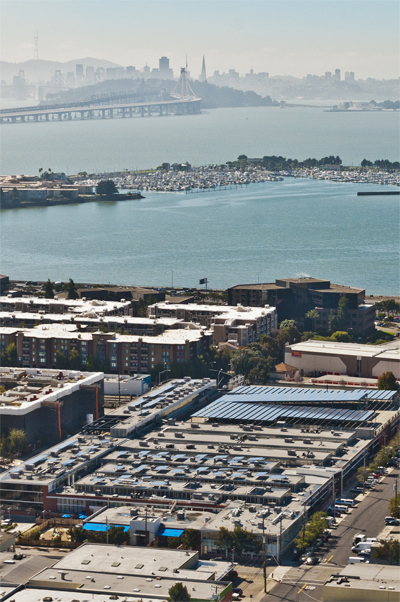
Today, Clif Bar & Company employs more than 300 people. It’s a top food brand, selling to independent outdoor retailers and grocery stores alike. In Emeryville, a staff of foodie-athletes experiments with the Clif line of bars, gels, drink mixes, gummy products, and kids’ snacks to concoct new flavors and tweak nutritional constitutes on exiting recipes. This month, a new flavor, called Gary’s Panforte, offers a “spicy and sweet, nutty, bready flavor with a hint of ginger and cloves,” as we put it in an early taste-test review.
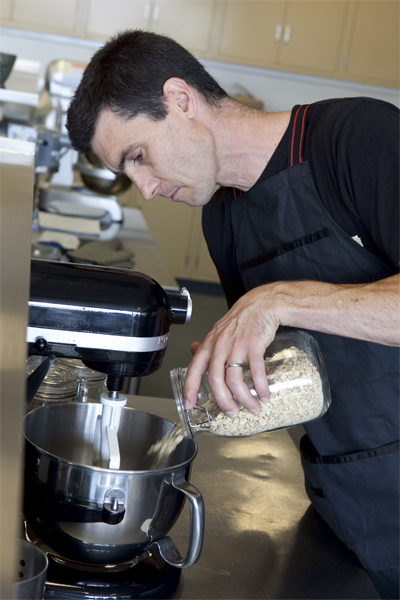
As a sister business, Clif Family Winery grows and sources grapes in Napa Valley and produces a line of red and white wines. At the end of my visit, I sat down with Erickson and after a half-hour of conversation he went into a back room and fetched a bottle of wine. We talked about his business, the state of energy food, the Clif wine division, and his passion for biking. “You gotta see these pictures,” he said at one point, fetching an iPad to flip through a series of shots from a recent trip.
Before the visit, I’d polled GearJunkie readers on what questions to ask Erickson in the interview. In person he graciously answered a handful, including one from a reader who asked about the “most foul Clif flavor” ever made (Gary wavered on this, but another Clif person mentioned an old “savory” Mojo bar blend where they added way too much red pepper extract). One reader wanted to know about a fried-rice flavor bar (not on the horizon, Gary said), and another about biodegradable packaging (yes, Clif is indeed looking into this!).

I left Clif with a goodie bag of products and a bottle of wine. During the afternoon, over cooking sheets and a big mixing bowl, I’d made my own Clif Bar (the Panforte flavor) and, just out of the oven, they were still warm. A cookie-like aroma was drifting up from my bag. Rain tapped on the roads of Emeryville as I backed up, the Clif “temple” to energy food (and many other things) fading in the rear-view as I drove away.
—Stephen Regenold is editor of GearJunkie.com. Connect with Regenold at Facebook.com/TheGearJunkie or on Twitter via @TheGearJunkie.

